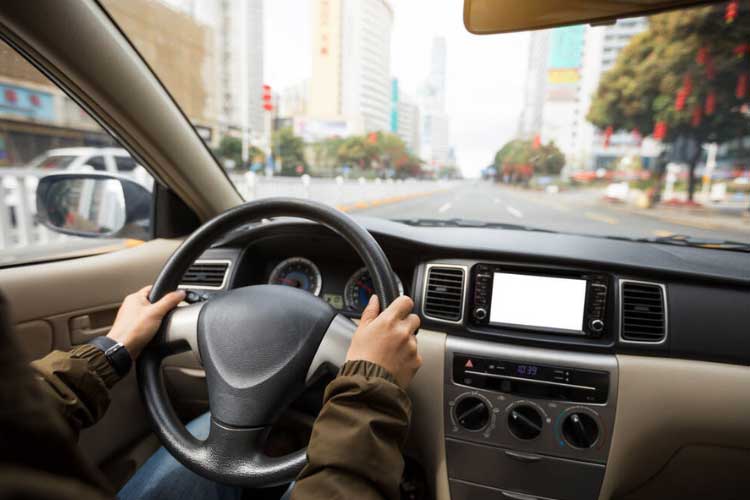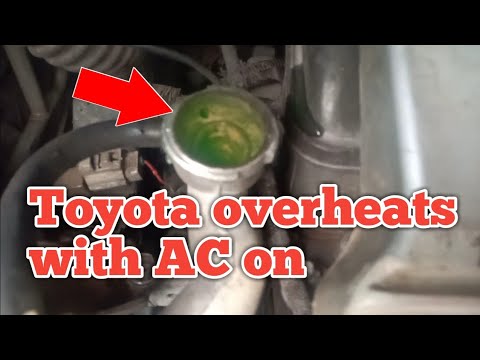Air conditioning is a crucial feature in cars as it helps keep the car interior and the driver cool. Turning on the AC increases the RPM, and you might notice your engine revving harder.
But why does a car overheat when AC is on? A faulty carburetor fan or a cooling system can cause the engine to overheat after turning the air conditioner on. Also, the AC compressor, which provides pressure to the refrigerant, might be malfunctioning. Replace the faulty parts to fix the issue.
Besides keeping you warm in the summer instead of cold, an AC overheating problem risks damaging the engine. Read on to learn why your car might be overheating when you turn on the AC and its solutions.
What Causes Car to Overheat When AC is on?

Car overheating when AC is on is a common problem in both high-end and economy cars. The drivers explain this problem to be absent when the Air con is off and the engine runs at an ideal temperature. However, the engine begins to overheat when the Air con comes on.
Unlike the usual overheating problem where the cooling system is to blame, this problem is unique, only appearing when the air conditioner is on. Following are some possible causes for your car to overheat when you turn on the AC.
Also, the overheating problem caused by the AC running has several solutions. It all depends on the cause of your problem and how bad it is. We have addressed the possible remedies alongside the problems.
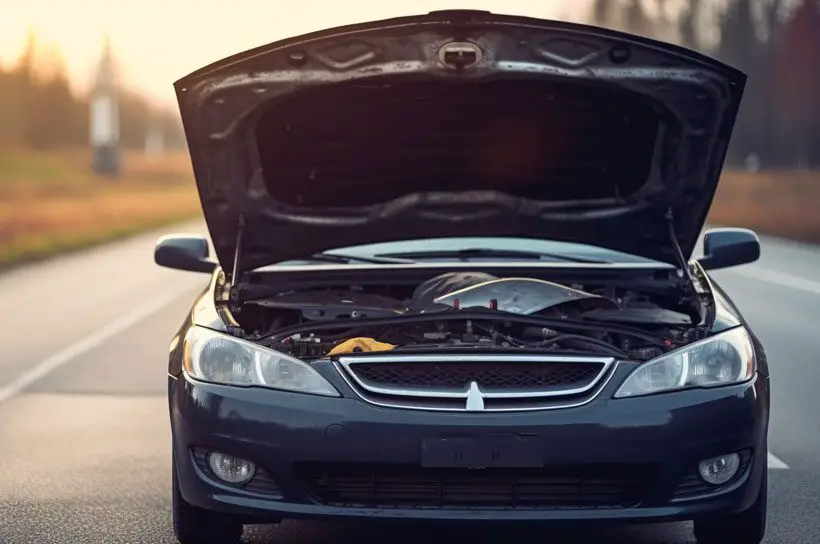
Below are some reasons the radiator might be ineffective.
1. Blocked, cogged, or faulty Radiator
A vehicle’s radiator is responsible for cooling the engine when the thermostat detects a temperature rise. Without it, the engine retains its temperature, which increases every second as it works.
Your radiator might be effective when the engine is running but struggle to keep up with the additional heat by the AC. The following are some reasons the radiator might be ineffective.
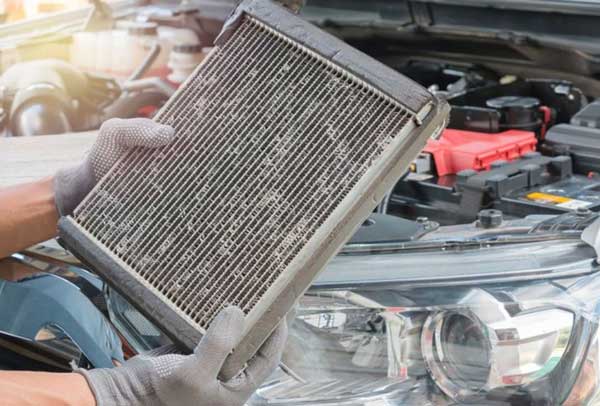
Clogged radiator
If the radiator is clogged, the coolant won’t circulate and cool properly. Debris and rust are the common causes of radiator clogging and must be cleaned.
Blocked fins
The radiator has thin tubes that run in its front part carrying the hot coolant from the engine. If these tubes start clogging because of debris, they cannot cool the coolant, exposing the car to heat.
Faulty radiator cap
Radiator caps regulate pressure in the cooling system and prevent damage. If the radiator cap can’t maintain proper pressure, it can cause the car to overheat.
With the above radiator problems, turning on the AC might be pressuring it more, and because it can’t handle it well, the engine overheats.
2. Failing Fans
Most cars have multiple fans to provide air when the engine begins warming up. The fans have a switch and a motor, and some have a clutch that allows them to freewheel when not needed. Either of these parts can be faulty or malfunctioning, allowing the engine to overheat when AC is activated.
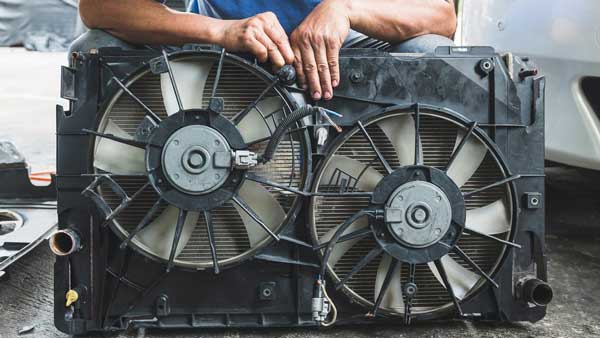
Possible ways the fan can be the cause are;
- Both Fans aren’t working – If both fans aren’t working, the engine cannot be cooled, especially with the extra demand from the AC.
- One fan isn’t running – In most cars, the radiator fan should run along the cooling fan when the AC is activated. If one of the fans fails to run, the engine can overheat as it lacks enough cooling air.
If your fan has a faulty switch, repair or replace it. You can also repair a faulty fan motor or replace the fans with new sets. If you opt to replace the fan, buy one that is compatible with your vehicle.
3. Fault In the Cooling System
The cooling system doesn’t only work in the engine but also aids in air conditioning. Any fault in this system exposes the engine to overheating and affects the AC performance. Following are some ways the cooling system might be experiencing some problems.
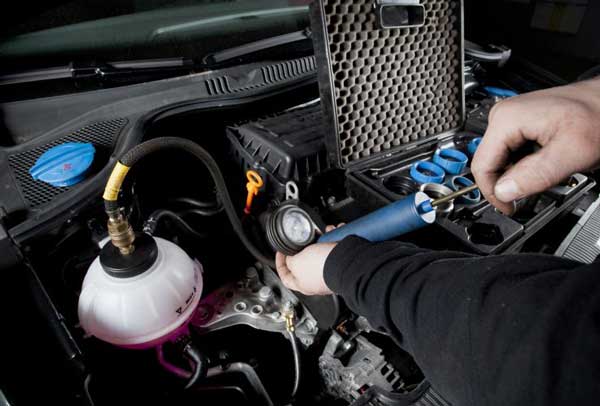
Air pockets in the cooling system
The presence of air bubbles in the coolant can cause it to retain some heat after cooling. Then the heat gets to the coolant, which then heats the engine.
Leakage
The cooling system works with pressure to ensure coolant-to-metal contact at the engine. Thus, the presence of leaking points can reduce pressure, decreasing the effect of coolant on the engine.
If you find out that your cooling system has damaged hoses that are leaking coolant, replace them. Also, it’s best to refill the coolant to be sure it has enough pressure. You should also remove air from the coolant by rebreeding it after running the engine for some time.
4. Faulty AC Compressor
The compressor’s purpose on a car’s AC system is to pressurize the refrigerant. This compressor uses power from the engine’s output shaft, which also powers the vehicle motion, to operate.
In case of a fault in the compressor, the engine has to work harder to provide more energy. During the process, the engine will overheat each time the Air con is activated.
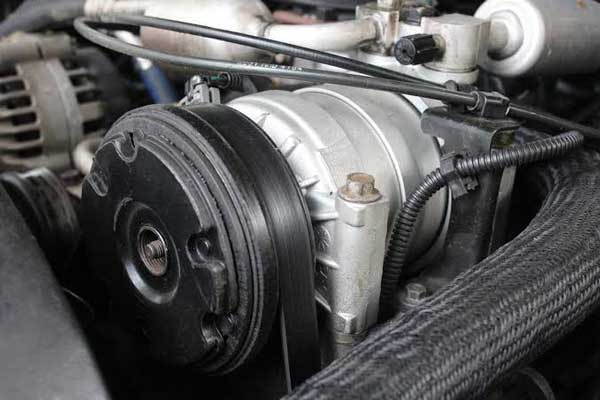
On Reddit askmechanics, where a user reported overheating when AC is on, he said refilling the Freon solved it. Refill your AC with this nonflammable gas if you diagnose it as the cause of your engine overheating. If the compressor is broken and overworking the car’s engine, you should replace it with a new one.
5. Faulty Temperature Sensor
A Coolant Temperature Sensor is usually near the car’s engine thermostat. It measures the temperature in the coolant and signals the engine control unit. If the sensor is faulty and can’t send the correct signal to the ECU, the engine can overheat when you run the AC.
The scenario is possible because the fans that cool the engine remain inactive when they should be running.
A faulty temperature sensor cannot be repaired and should be replaced. A new coolant temperature sensor costs between $300 and $400 without the labor cost. You can get the replacement done by your dealers for a compatible and trustable part.
What Are the Early Symptoms of Overheating Problem When AC is on?
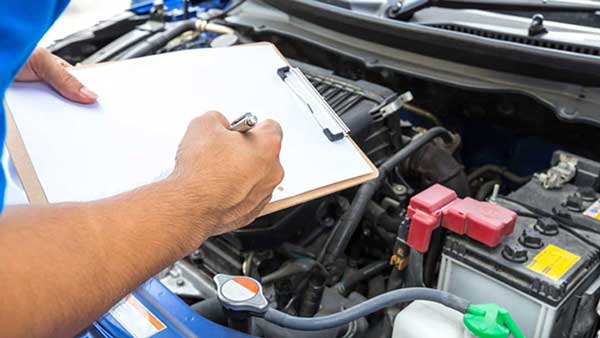
Turning the AC on works the engine more, which means its temperatures begin to rise. However, the heat gauge shouldn’t run too high or overheat, as it can signify a problem. Some early symptoms of this problem include
- The AC blows warm air instead of cold air
- One of the two fans in the radiator doesn’t run even at startup
- Presence of coolant residue on the radiator cap and hoses
- Air con gets warmer when the car stops in traffic or when idling
- Bad fuel economy is related to the engine working harder to keep the AC running
How Do I Diagnose the Overheating Problems When Air Con is on?

Diagnosing the overheating problem can help you identify the exact failing part by eliminating others. You can begin by using a scan tool to check for any problem with the sensors or the car’s computer. Another possible diagnosis involves;
- Check for coolant leaks in the cooling system
- Test the fans using your car’s battery or check if they run when you start the engine
- Check if the AC compressor is working well
- Check the radiator for rust, especially on the edges
- Check the radiator for dust and debris
- Check the cooling system for air bubbles
According to Forum, an inefficient cooling system is responsible for most overheating problems. Start by diagnosing your cooling system before checking other parts.
Video
FAQs
This section covers some of the questions most users with an overheating problem ask. The answers are well-researched to clear any doubts you might still be having.
Diagnosing the overheating problem for your car ranges between $100 and $500. However, the price varies from one repair shop to the other and with the vehicle.
Yes. It’s okay to drive to a repair shop to diagnose and fix the overheating problems as long as AC runs to keep it warm. However, this is just a temporal solution, and you must get your vehicle fixed soon.
Yes, a bad AC compressor can strain the engine causing it to overheat. Replace the faulty AC compressor as soon as possible to prevent further strain on the vehicle.
Bottom Line
Though it’s normal for the engines to run harder when AC is on, overheating is not normal. Your AC can overheat your vehicle for the various reasons described in the article. Observe the symptoms and the early signs to learn and fix them before more damage is done.
Like most malfunctioning parts, you can repair or replace the faulty parts causing the problem. You can either diagnose the vehicle yourself or hire a mechanic to do it for you. However, diagnosis is not complicated, and you can do it by following the provided tips or your car’s manual.
